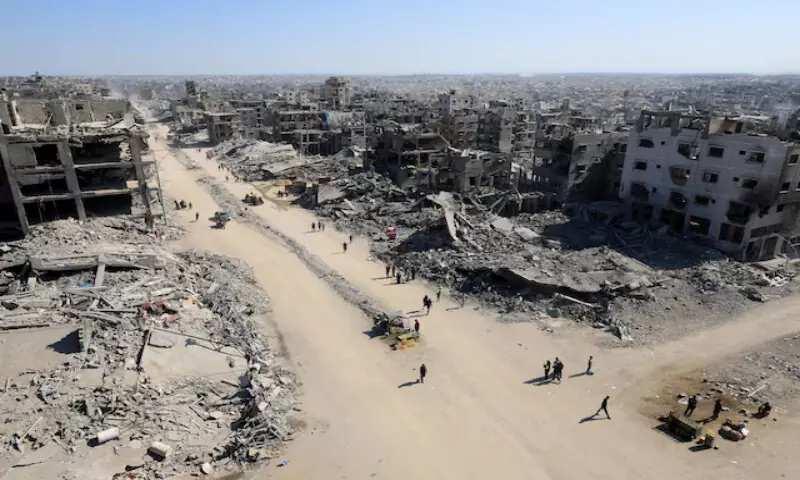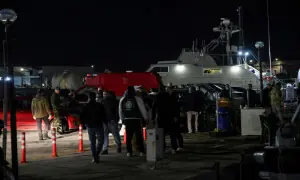Israel refuses aid via Rafah, toughens stance on Hamas
Israel said on Thursday it was preparing for the reopening of Gaza’s Rafah crossing with Egypt to let Palestinians in and out, but set no date as it traded blame with Hamas over violations of the US-mediated ceasefire.
A row over the return of bodies of hostages held by Hamas in Gaza retains the potential to upend the truce, along with other major planks of the plan yet to be resolved, including disarmament of Hamas and Gaza’s future governance.
Israel, which killed 23 Palestinian civilians after the ceasefire, demanded that Hamas fulfil its obligations in turning over the unrecovered bodies of all 28 hostages who died during the war.
The Palestinian faction said it had handed over 10 bodies, but Israel said one of them was not that of a hostage.
“We will not compromise on this, and we will spare no effort until our fallen hostages return, every last one of them,” Israel’s government spokesperson said on Wednesday.
An allied wing of Hamas said the handover of more bodies in Gaza, which was reduced to vast tracts of rubble in Israeli strikes, would require the admission of heavy machinery and excavating equipment into the Israel-blockaded Palestinian enclave.
On Thursday, a senior Hamas official accused Israel of flouting the ceasefire by having killed at least 24 people in shootings since Friday, and said a list of such violations was handed over to mediators.
“The occupying state is working day and night to undermine the agreement through its violations on the ground,” he said.
The Israeli military did not immediately respond to the Hamas accusations.
Twenty remaining living hostages were freed on Monday in exchange for thousands of Palestinians jailed in Israel.
Longer-term elements of Trump’s plan, including the make-up of an international “stabilisation force” for the small, densely populated territory and moves towards creating a Palestinian state – rejected by Israel – have yet to be hashed out.
Massive increase in aid needed
In a statement on Thursday, Israel’s military aid agency COGAT said coordination was underway with Egypt to decide a date for reopening the Rafah crossing for the movement of people after completing the necessary preparations.
COGAT said the Rafah crossing would not open for aid as this was not stipulated by the truce deal at any stage, rather, all humanitarian goods bound for Gaza would pass through Israeli-controlled Kerem Shalom after undergoing security inspections.
With famine conditions present in parts of Gaza, UN Under-Secretary-General for Humanitarian Affairs Tom Fletcher told Reuters in an interview on Wednesday that thousands of aid vehicles would now enter Gaza weekly to ease the crisis.
Aid trucks rolled into Gaza on Wednesday, and Israel said 600 had been approved to go in under the truce pact.
Fletcher called that a “good base” but nowhere near enough, with medical care also scarce and most of the 2.2 million population homeless.
Ismail Al Thawabta, head of the Gaza media office, said the quantities of aid that had entered Gaza since the fighting subsided were a “drop in the ocean” of what is needed.
“The region urgently requires a large, continuous, and organised inflow of aid, fuel, cooking gas, and relief and medical supplies,” he told Reuters.
Much of the heavily urbanised coastal enclave has been rendered a wasteland by Israeli bombardments and air strikes that have killed nearly 68,000 Palestinians.
For the latest news, follow us on Twitter @Aaj_Urdu. We are also on Facebook, Instagram and YouTube.

























Comments are closed on this story.